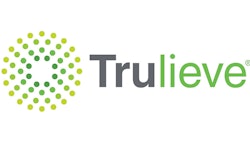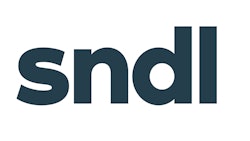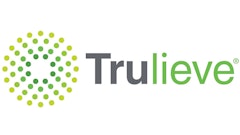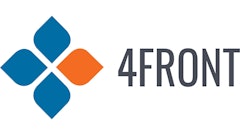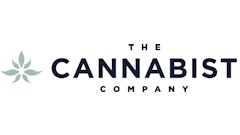
CHICAGO, Aug. 7, 2024 – PRESS RELEASE – Verano Holdings Corp., a leading multistate cannabis company, announced its financial results for the second quarter ended June 30, 2024, which were prepared in accordance with U.S. generally accepted accounting principles (GAAP).
A line-by-line breakdown of the company’s second quarter 2024 financial results can be viewed here.
Second Quarter 2024 Financial Highlights
- Revenues, net of discounts, of $222 million, an increase of 0.5% versus the prior quarter, meeting company guidance, and a decrease of 5% year-over-year.
- Gross profit of $114 million or 51% of revenue.
- SG&A expense of $87 million or 39% of revenue.
- Net loss of $(22) million or (10)% of revenue.
- Adjusted EBITDA1 of $71 million or 32% of revenue.
- Net cash provided by operating activities of $8 million.
- Capital expenditures of $19 million.
Management Commentary
“Our second quarter performance was strong, highlighted by proactive measures we executed to further bolster the business, including authorization of a share repurchase program, capex investments, and subsequent to quarter end, strategic M&A that upon closure, will grant us vertical access to the Virginia market ahead of adult use,” Verano founder and CEO George Archos said.
“Looking ahead, we are prepared to leverage near-term catalysts including this week’s launch of Ohio adult-use sales, positive polling trends in Florida showing strengthening support of Amendment 3, ongoing adult-use discussions in Pennsylvania, and continued rescheduling momentum at the federal level,” he said. “Adding Virginia to our portfolio and deepening our robust Arizona business also provides additional growth opportunities regardless of federal rescheduling timing and progress. We remain excited and confident in Verano’s ability to continue driving long-term, sustainable growth throughout 2024 and beyond.”
Second Quarter 2024 Financial Overview
Revenue for the second quarter 2024 was $222 million, down 5% from $234 million for the second quarter 2023, and up slightly from $221 million for the first quarter 2024. The decrease in revenue for the second quarter 2024 compared to the second quarter 2023 was driven primarily by expected declines in New Jersey retail as dispensaries continue to open across the state, partially offset by increases in Maryland retail and wholesale in relation to the adult-use program launch in July 2023, and new Zen Leaf store openings in the Connecticut market.
Gross profit for the second quarter 2024 was $114 million or 51% of revenue, down from $115 million or 49% of revenue for the second quarter 2023, and up from $113 million or 51% of revenue for the first quarter 2024. Though gross profit for the second quarter 2024 decreased in absolute dollars compared to the second quarter 2023 primarily due to top-line declines as a consequence of continued third-party New Jersey dispensary openings, gross profit margin increased over 220 basis points (bps) attributable to increased contribution from net wholesale revenue.
SG&A expense for the second quarter 2024 was $87 million or 39% of revenue, up from $85 million or 36% of revenue for the second quarter 2023, and down from $90 million or 41% of revenue for the first quarter 2024. The increase in SG&A expense for the second quarter 2024 compared to the second quarter 2023 was driven primarily by an increase in salaries and benefits, due to increased headcounts related to new store openings during the quarter.
Net loss for the second quarter 2024 was $(22) million, or (10)% of revenue, versus $(13) million, or (6)% of revenue in the second quarter 2023. The increase in net loss for the second quarter 2024 compared to the second quarter 2023 was driven by a largely noncash loss on debt extinguishment attributable to a $50 million prepayment under the company’s senior credit facility and a slight increase in selling, general and administrative expense.
Adjusted EBITDA1 for the second quarter 2024 was $71 million or 32% of revenue.
Net cash provided by operating activities year to date was $39 million, down from $41 million for the prior year period.
Capital expenditures year to date were $28 million, up from $17 million for the prior year period.
2024 Guidance
- The company is not issuing guidance at this time given the timing uncertainties surrounding the closing of the pending acquisitions of The Cannabist Co.'s Arizona and Eastern Virginia operations.
Second Quarter 2024 Operational Highlights
- Expanded the company's retail footprint by opening the following new dispensaries:
- MÜV™ locations in Haines City, Naranja and Port Richey, elevating the company's Florida retail operations to 77 dispensaries statewide;
- Strengthened Connecticut retail footprint with the opening of Zen Leaf Naugatuck, the company’s third social equity joint venture location and fifth dispensary statewide.
- Joined industry stakeholders as active supporters of the Smart & Safe Florida campaign advocating for the passage of the Amendment 3 November ballot initiative.
- Announced share repurchase authorization.
- Launched Cabbage Club, the first nationwide proprietary multistate cannabis membership club, in Connecticut, Maryland and Michigan—following its successful debut in Illinois and New Jersey—with plans to further scale the club across the company's footprint in 2024.
Subsequent Operational Highlights
- Opened Zen Leaf Fairless Hills, the company's newest affiliated Pennsylvania dispensary, in prime new Philadelphia area location.
- Entered into an agreement with The Cannabist Co. to acquire its Eastern Virginia operations subsidiary and its Arizona operations subsidiaries.
- Welcomed adult-use customers at Zen Leaf dispensaries in Ohio on Aug. 6.
- Current operations span 13 states, comprised of 142 dispensaries and 13 production facilities with more than 1 million square feet of cultivation capacity.
Balance Sheet and Liquidity
As of June 30, 2024, the company’s current assets were $358 million, including cash and cash equivalents of $130 million. The company had a working capital deficit of $(3) million and total debt, net of issuance costs, of $396 million.
The company’s total Class A subordinate voting shares outstanding was 346,417,144 as of June 30, 2024.
_________________________
1Adjusted EBITDA is a non-U.S. GAAP financial measure. It is derived from EBITDA, another non-U.S. GAAP financial measure, and is defined in this news release in the section below titled “Non-U.S. GAAP Financial Measures.” The most directly comparable U.S. GAAP financial measure to adjusted EBITDA is net income (loss). The reconciliation of adjusted EBITDA to U.S. GAAP net income (loss) is set forth below in the tables included in this news release.
Non-U.S. GAAP Financial Measures
Verano uses non-U.S. GAAP financial information to evaluate the performance of the company. The terms “EBIT,” “EBITDA,” “adjusted EBITDA”, and "Operating Cash Flow" do not have any standardized meaning prescribed within U.S. GAAP and therefore may not be comparable to similar measures presented by other companies. Accordingly, this non-U.S. GAAP financial information is intended to provide additional information and should not be considered in isolation or as a substitute for measures of performance prepared in accordance with U.S. GAAP.
The company calculates EBIT as net income (loss) before interest expense and income tax expense; EBITDA as net income (loss) before interest expense, income tax expense, depreciation, and amortization; and adjusted EBITDA as net income (loss) plus net interest expense, income tax expense, depreciation and amortization and also excludes certain one-time extraordinary items. The calculations of the non-U.S. GAAP financial measures used in this news release and the reconciliations to the most comparable U.S. GAAP financial numbers are included in the tables below.
Operating Cash Flow is a non-U.S. GAAP financial measure. It is derived from U.S. GAAP net income (loss) which is also its most directly comparable U.S. GAAP financial measure. The reconciliation of operating cash flow to U.S. GAAP net income (loss) is set forth below in the tables included in this news release.
Management believes that this non-U.S. GAAP financial information is useful as a supplement to comparable U.S. GAAP financial information because it provides consistency and comparability with past financial performance and assists in comparisons with other companies, some of which use similar non-GAAP information to supplement their GAAP results. Management reviews these non-U.S. GAAP financial measures on a regular basis and uses them, together with financial measures included in the company’s financial statements, to evaluate and manage the performance of the company’s operations. These measures should be evaluated only in conjunction with the comparable U.S. GAAP financial numbers reported by the company.











